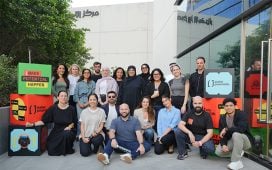
On the whole, 2020 was an annus horribilis, an absolute stinker of a year. It may not have killed off as many of our favourite celebrities as 2019 did, but – from the coronavirus pandemic to police brutality to Trump’s destructive megalomania reaching new heights – it plumbed new depths for global crappiness.
It also brought about a lot of change. Much of it was bad. Some of it was good. Some of it is still to be decided. ‘The new normal’ is a catchphrase that has haunted the lips of marketers since long before Covid-19 emerged. But it’s taken on a whole new meaning. In the past 12 months we have changed the way we live, the way we work, the way we interact and more.
When all this is ‘over’, whatever that means, more will return to the way it was than some of us would like or expect. But lots will stay changed.
All the talk about remote working, flexible offices and virtual meetings will no longer be hypothetical, but is now a real issue that needs to be addressed, tackled, negotiated, discussed and actioned. There will never be consensus, of course, and already we see the frogmarch-back-to-the-office factions lining up against the digital-nomad-daydream factions. But now the conversation about work-from-home is based on experience not hypothesis.
We’ve been reading for a few years about how millennials and Generation Z are prepared to change jobs in return for reduced pay but the option to work remotely, particularly in those data- and tech-led professions where it’s a jobseeker’s market. But now the rest of us can join in. While we have already seen a return to the office in the Middle East, it’s generally under more relaxed terms than the nine-to-five (plus-plus) that those of us who can carry our work around on laptops were used to before.
Covid-19 has pushed digital transformation at all levels. The way we work, communicate and live has become more digital. Just look at how we now scan QR codes to call up the menu in restaurants.
Messaging has evolved over the year, always against the backdrop of the coronavirus, and even when marketers haven’t mentioned the health crisis. Although there will always be some brands who are seen to capitalise on a catastrophe, by and large the lack of opportunism was reassuring. Instead, we saw a lot of empathetic messaging, positive and inclusive cheerleading and moral support.
One of the big debates after the initial lockdown in March was when to change gears. When was it OK to shift from in-it-together and safety-is-our-number-one-priority communications to actually starting to sell again? Even influencers drew praise for dropping their idealistic, aspirational masks and daring to show some relatable human frailty as they struggled along with the rest of us to cope with 2020.
Just like people in a crisis, businesses reacted in different ways. Some did the right thing, some did the wrong thing. Some stuck to their guns while others changed how they reacted according to the situation on any given day. For long into the future, many brands will be judged on how they acted over the course of this last year. With conversation, empathy and the personal touch making marketers seem more human, consumers have been finding out who their friends are, and who they will want to hang out with in the future.
This will also affect talent acquisition, as prospective hires factor into their next move how companies treated their staff when the going got tough. There are more people out of work now than before the crisis, but as the economy picks up again digital talent in particular will be even more in-demand than we might have predicted this time last year, and that talent will want to work for the good guys.
Aside from the niches – such as digital, data, tech, medical, internet-of-things, and so on – where accelerated demand has driven accelerated growth, we are in a global financial slump like nothing before.
Since the 2008 global economic crisis, the media, marketing and communications industry has been sharing the pain of its clients.
As marketers dialled down their spend – through panic, caution or necessity – their agency partners suffered along with them.
This has led to job losses, takeovers, downsizing and more. Some big agencies have merged. In the wake of 2019 mergers – Wunderman and J. Walter Thompson became Wunderman Thompson; VML and Y&R became VMLY&R – this year saw more arranged marriages within WPP. Shopper marketing agency Geometry is to be folded in under VMLY&R to form VMLY&R Commerce. And AKQA is merging with Grey.
Big names have left their posts abroad and at home. Mindshare’s global boss Nick Emery took a video call in the loo and was fired. Ajit Varghese quit as global president of Wavemaker. Interpublic Group of Companies CEO Philip Roth is stepping down to be replaced by Philippe Krakowsky. There have been some big changes at the very top.
In the region, notable departures (in roughly chronological order) include: Bechara Mouzannar at Publicis Communications; Adil Khan at Saatchi & Saatchi; Ramsey Naja and Philippa Clayre at Wunderman Thompson; Nadim Samara, Eric Mirabel and Layal Takieddine at OMG; Kamal Dimachkie at Publicis Communications; and Mazen Hayek at MBC. 2020 has been tough.
The largest change within the media industry came when MBC, the region’s biggest broadcaster and a regional playmaker, announced it was taking its media sales in-house. This means it is ending its long-standing agreement with Choueiri Group, a partnership that has been one of the backbones of the regional media market. MBC is building a new headquarters in Riyadh, which it will move to within the next few years. The shift from the region’s biggest TV budgets flowing through a Lebanese-run company based in Dubai to a Saudi-owned organisation based in the kingdom is likely to have long-running cultural as well as business implications for the industry.
After that announcement was made in September, news from MBC has been coming thick and fast. It has announced leadership of MBC Media Solutions (MMS), its new sales unit. MMS will be run by CEO Ahmed Al Sahhaf, previously general manager of consumer marketing communication at national telco STC. The chief operating officer is Nadim Samara, from OMG. Marketing will be headed by Samara’s former colleague Layal Takiedine. In November, MBC announced a deal with Rotana Media Group, once seen as its main rival, to bring that broadcaster’s channels and content to the Shahid VIP video-streaming service. As this issue of Campaign was going to press, MBC announced that Sam Barnett, who left the company a year ago, would be returning to his CEO role. Marc Antoine d’Halluin, who had been in that post since Barnett left, will now be an advisor to the board.
Although MBC and Choueiri Group grew and shaped the industry together, MBC is far from the only media owner Choueiri Group represents. It has a wide portfolio across all channels, and in December it announced the renewal of its contract with Dubai Media Incorporated, the UAE-based group behind seven television stations, three radio stations, two newspapers and several digital properties. Choueiri’s Digital Media Services remains the strongest regionally headquartered force in online media.

On August 4, a massive blast in Beirut’s port killed more than 200 people, injured more than 6,000 and caused billions of dollars of property damage. Many advertising agencies were among the offices devastated by the explosion, and their staff among the casualties. The whole region rallied in support but it will be some time before Lebanon fully recovers.
Meanwhile, neighbouring Israel signed a US-brokered treaty normalising ties with the UAE and Bahrain. Israeli agencies have started to forge partnerships and set up shop in Dubai, and that collaboration is likely to accelerate in 2021.
The Dubai Lynx Festival of Creativity was first postponed and then cancelled this year, as was its older and larger sibling the Cannes Lions. The events were in good company, though, as live festivals, conferences and awards shows around the world were scuppered by coronavirus. Expo 2020 Dubai was pushed to 2021, and so was the Tokyo Olympics.
However, you can’t keep a good show down, and Lynx made a comeback online, hosting Lynx Live in October and giving the region’s creative community its fix of inspiration. In December, Dubai’s annual Gitex event ran a socially distanced edition that included the Marketing Mania show. And later in the same month, we at Campaign broadcast our Marcomms360 – Predictions 2021 event online. A stellar line-up of speakers endeavoured to forecast what next year holds in store. We, like many others, have spent the year developing our webinar skills to bring quality content to people in a safe way. We also launched our podcast series, On the Record with Campaign Middle East, in partnership with Snap. You can find it streaming on Anghami.
When lockdown was imposed in March, everyone shifted the way they do business, and Campaign was no exception. We began posting more online to keep the industry informed in real-time, and reduced our frequency from every two weeks to once a month. We also made our magazine available online for free through Issuu, in line with our stablemates at Motivate Media Group. This made sense as the government placed limits on print distribution to help stop the spread of the virus. Our magazine never went away and is still a strong part of our brand, but we are staying monthly for the time being, and continuing to build our digital presence.
We even joined Instagram. Are you following us yet?
Social platforms got a massive boost this year, as people looked for ways to keep in touch with friends and family they couldn’t physically meet.


The focus of content creators often shifted from idealised and aspirational to more rough-edged and honest. Nowhere was this more pronounced than on the TikTok platform, which kept Generation Z and the rest of us entertained with home-produced videos. Parent company ByteDance launched its TikTok for Business division to help marketers tap into a growing audience, and other platforms also doubled down on building up their commercial offerings for brands.
According to marketing intelligence service WARC’s latest data, online video was the only ad format to see growth this year. Even online advertising saw a -0.3 per cent decline, the first time it has not grown in 20 years.
All this negativity – at home, abroad, at work, out of work, in our personal and professional lives – has taken a toll on everyone, and the advertising industry can be particularly prone to mental anguish. We have a lot of talented creative people working extraordinarily hard under massive commercial pressure. That’s a recipe for stress, burnout and worse. Agencies, industry bodies and individuals have been focusing more on mental health this year than in the past, and that can only be a good thing. At Campaign we published brave articles by MullenLowe’s Matt Butterworth and freelance creative Shehzad Yunus, among others, and plan to carry on looking at the invisible pressures facing our friends, families and colleagues. We are keen to help dismantle the taboos surrounding mental health, and to provide a voice to those doing good work in the field.
We also continue to champion women in the industry, by providing a voice to the many talented women rising through the ranks, driving the industry forward and leading from within and from the top. We have seen our share of ‘manels’, panels consisting only of men (and have been guilty ourselves), but we continue to encourage and amplify female voices. In our latest list of Marketing Game Changers, half the names were women. The majority of our Faces to Watch, the rising stars within agencies and (from this year) client-side marketing departments, are female too. This is promising for the future, and long may it continue.
Across the world, vaccines are being administered. It is our industry that must take on the spectres of fake news and scepticism of science to persuade people to get involved, to wear masks and do the right thing to end the reign of the coronavirus. Messaging and communications have never been more important from an existential point of view.
As the world heals, it will evolve to a new ‘new normal’, which will be followed no doubt by a new-new new normal. And so on. The industry has challenges ahead, no doubt. But it will rise to them, whether it does that from the office or from home or from a tropical beach. And Campaign will be here to chronicle its successes.









